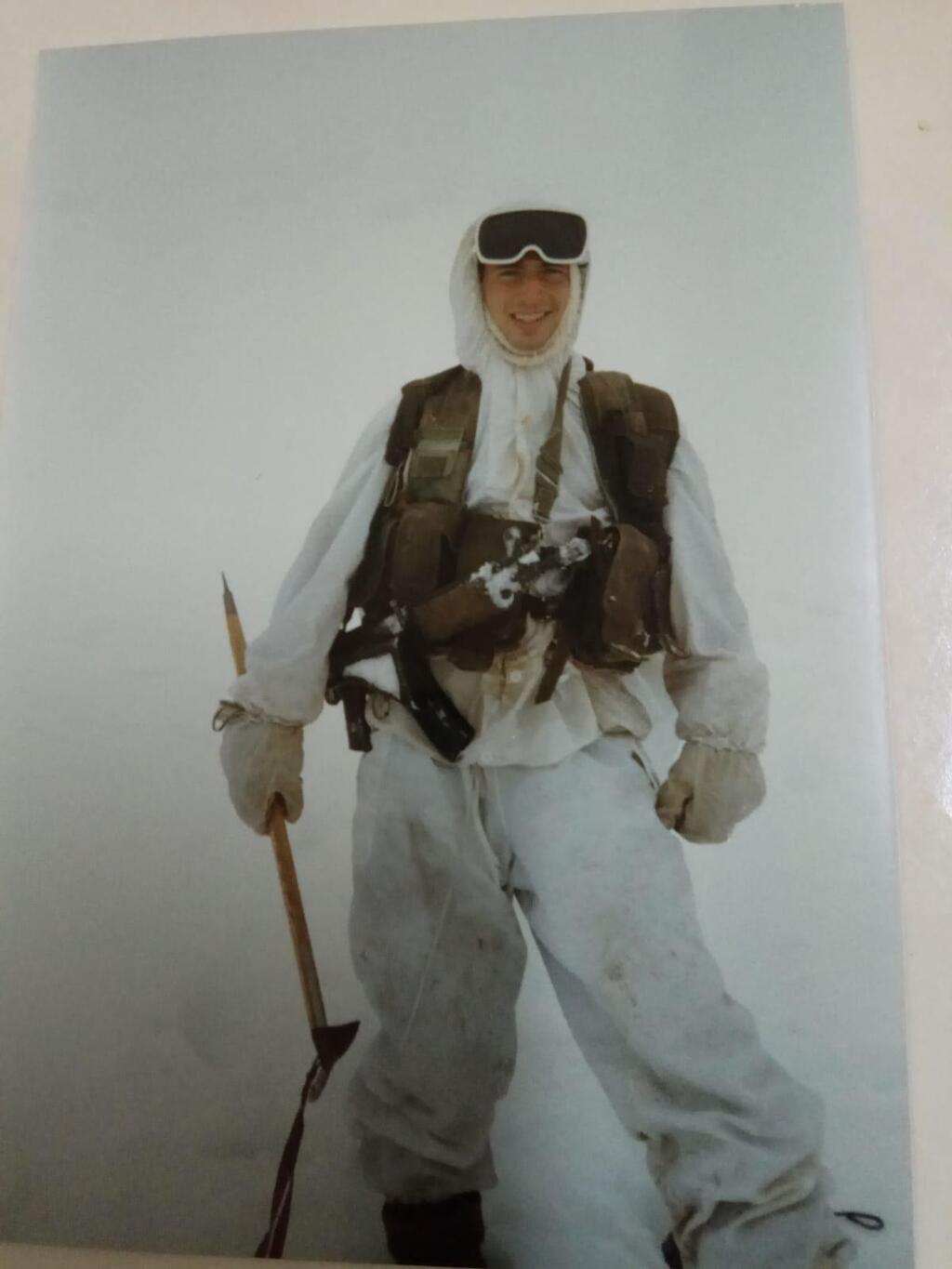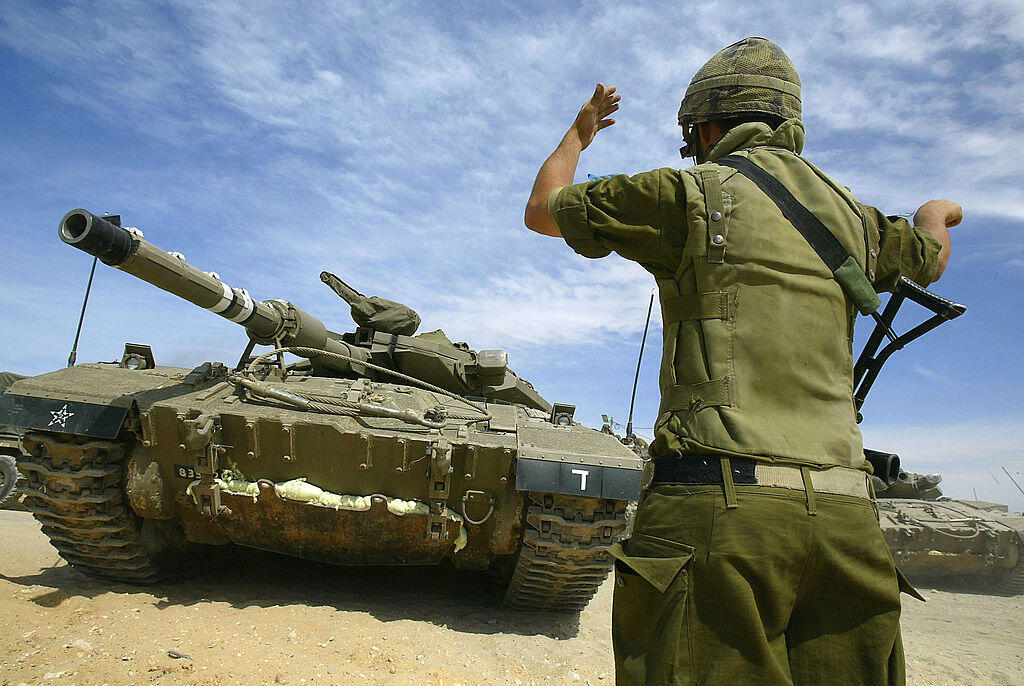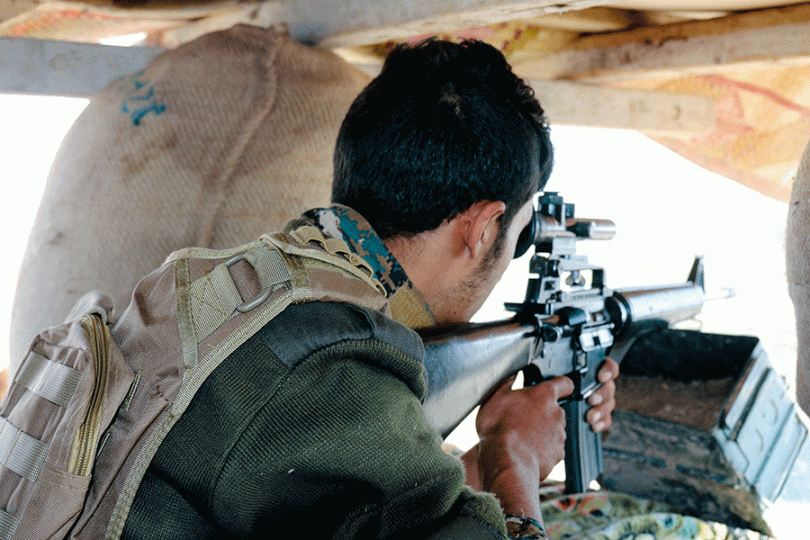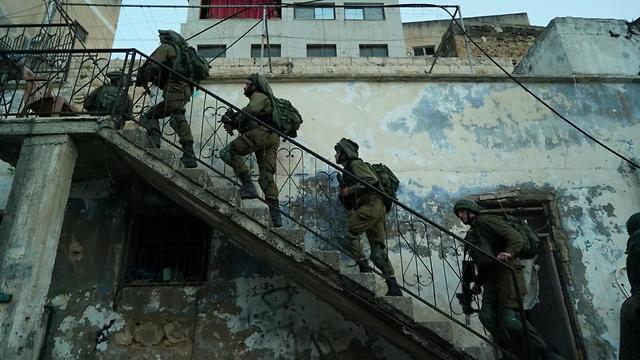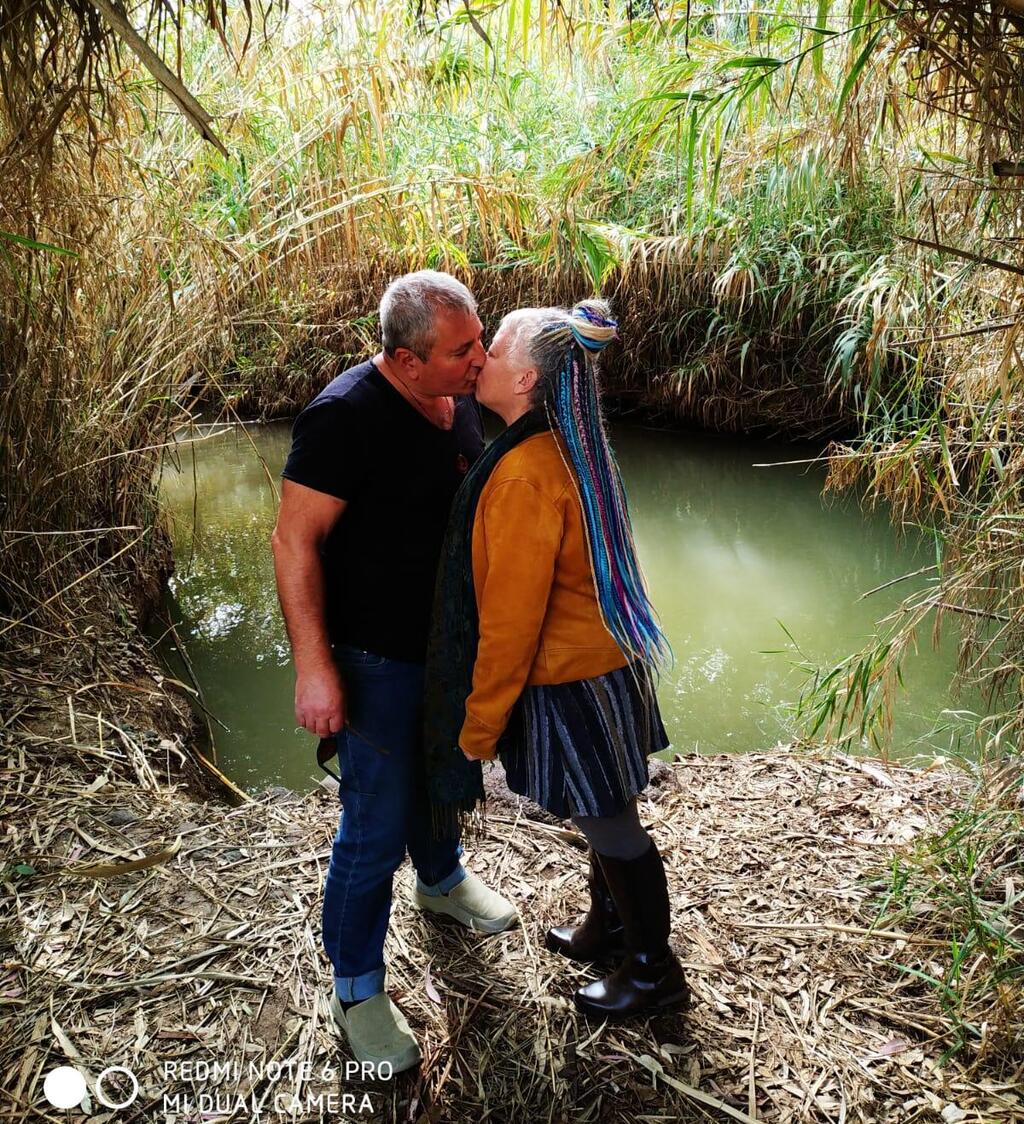Everything started in my military service as a combat soldier and sniper in the Golani Brigade, Israel's only infantry brigade, where I spent a total of 22 years - including in the reserves.
As a young soldier, I was filled with pride for excelling in my unit and for fulfilling my duty to my team, the army, and the country. Everything that was asked of me, I would do immediately and in the best possible way.
I experienced countless combat missions, some of which wounded and even killed my brothers in arms. In my role as a combat soldier, I myself also wounded and killed others.
When I finished my regular service, I was not aware that I had suffered trauma. I disconnected myself from the events and their influence on my mental state. And so I went on to work in security services - in Israel and abroad.
The training for the job was a direct continuation of the skills I had already acquired in the army: don't hesitate, don't give in to pain and always keep looking onward.
I was becoming more and more impulsive, disconnected from my emotions, repressing my feelings and hiding them - foremost from myself - but also from those close to me.
"Eli, prepare for gunfire"
In 2004 I was 39 years old, living in a village in the Galilee with my wife, two sons, and our dogs and cats. We had a successful business for artistic woodwork. My life was good overall.
It was a Friday. My phone rang, and on the other end of the line was an officer from my unit. He said the commando was about to enter Rafah, and that he needs an excellent sniper with him.
When I was 18, it was clear both to my partner and I that my army missions are first priority. This time around, however, she asked me to turn down the request.
I explained to her that I can't abandon the young team. Probably knowing it was worthless, she backed down and we said our goodbyes. For some reason, I had a weird intuition that I would not be coming back this time. I felt like that would be the last hug.
An hour and a half later I was already on base. We were debriefed and in combat mode immediately. After a long drive from the north I found myself in an armored vehicle with three friends. We drove east towards the Girit outpost near Rafah.
Already on the first night there were several missions. I was to be notified of targets, and several seconds later a bullet would leave my barrel.
On the third day of combat, late at night, what went down would stay with me for a long time. I tried to get a few minutes of sleep, while fully equipped with a vest and helmet, ready for action. My friend, the officer, woke me by shaking my foot and saying, "Eli, get up. There's three targets. prepare for gunfire".
Within seconds I was ready. The three figures were close to the commando forces. I got approval to shoot and the red dot of my gun was already pointed on one of the figures.
It would be a short range shot, between 400 and 450 meters. This distance allows you to clearly see body language, and when I scanned the figure I got a gut feeling that the three were innocent. I didn't recognize the usual body language of terrorists, no weaponry. They seemed relatively calm, sitting on their balcony. On the other hand, if I was wrong, they could harm the soldiers. As I was contemplating what to do, one of the soldiers from my team came up on the roof to spur me. He kicked my foot and said "Yalla, mark another three Xs on your gun".
Some 12 minutes later, which felt like forever, the observation post reported to me: "Eli, Don't shoot". Turns out I was right: the three figures I saw weren't terrorists. For a few minutes I was unable to move or breath.
Shortly after returning home, I realized something in me cracked. I turned to my unit to seek out therapy for victims of battle fatigue.
"Paralyzed in every aspect of life"
Life turns around on us just like that. Turns out I had PTSD, and it very quickly took over my personal life.
The woodshop was no longer functioning, my relationship and my children were directly influenced. Essentially, I was paralyzed in every aspect of my life for many years onward.
I didn't sleep well for years. I couldn't fall asleep, and when I finally would fall asleep, I had nightmares that brought me back to the army, to the same moments I tried so hard to shut out. When you don't sleep, you become a very difficult person: impatient, anxious, angry, aggressive. This kind of person distances himself from his family and friends, or they eventually distance themselves from you.
The trauma disconnected me. In order to survive, I had to put up a wall between myself and my emotions. I started to hide, from myself and others, that I was having panic attacks, dissociations, that I was wandering into Arab villages at night, and was no longer able to earn a living.
In the time that passed I learned many different ways to deal with my trauma and all its side effects: I went to psychological treatments, workshops for relationship and anger management, sleep workshops, and more.
I also took part in a Defense Ministry project called "The ship sails on" that helps PTSD victims make their lives more tolerable.
Through the treatments at the Rambam Health Care Campus I discovered transcendental meditation. I went for it, thinking to myself - it can't hurt. It's a very simple practice that you do for 20 minutes in the morning and in the evening.
This practice, which forced me to be with myself for 20 minutes twice a day, brought me back to my center and inner peace. This made me able to concentrate during interactions or when working at something.
Instead of panicking - I meditate
Since the traumatic event, medical treatments are a trigger for me. Unfortunately, the body deteriorates with the mind.
When I had to have four teeth pulled, I asked the doctor to give me five minutes to breath and do some mediation exercises. Only after doing so, could I go through the treatment relatively easily.
Also, before anesthesia, I do a few minutes of breathing and meditation, and then I can help the medical staff help me, instead of automatically resisting.
When I'm calm, my blood pressure balances out without having to take pills. The meditation practice helps me with dissociation, a type of multiple personality disorder.
Instead of being sucked into a state of fight or flight, I practice meditation and bring myself back to the present, and then I can make decisions that are good for me. It can really save me from physical harm.
Meditation also helped me improve my sleeping and interactions with my surroundings. When I feel that I'm about to break down, I take a minute to meditate. I have less panic attacks, and even when I do, I sometimes manage to lessen their impact.
I feel that I discovered an amazing tool - easy and comfortable to practice, not dependent on other people, that improves my life. My wife and I are now coming out with a lecture and book called "About love and PTSD," in which we offer an alternative perspective on recovery options for relationships and family life within the framework of trauma.


